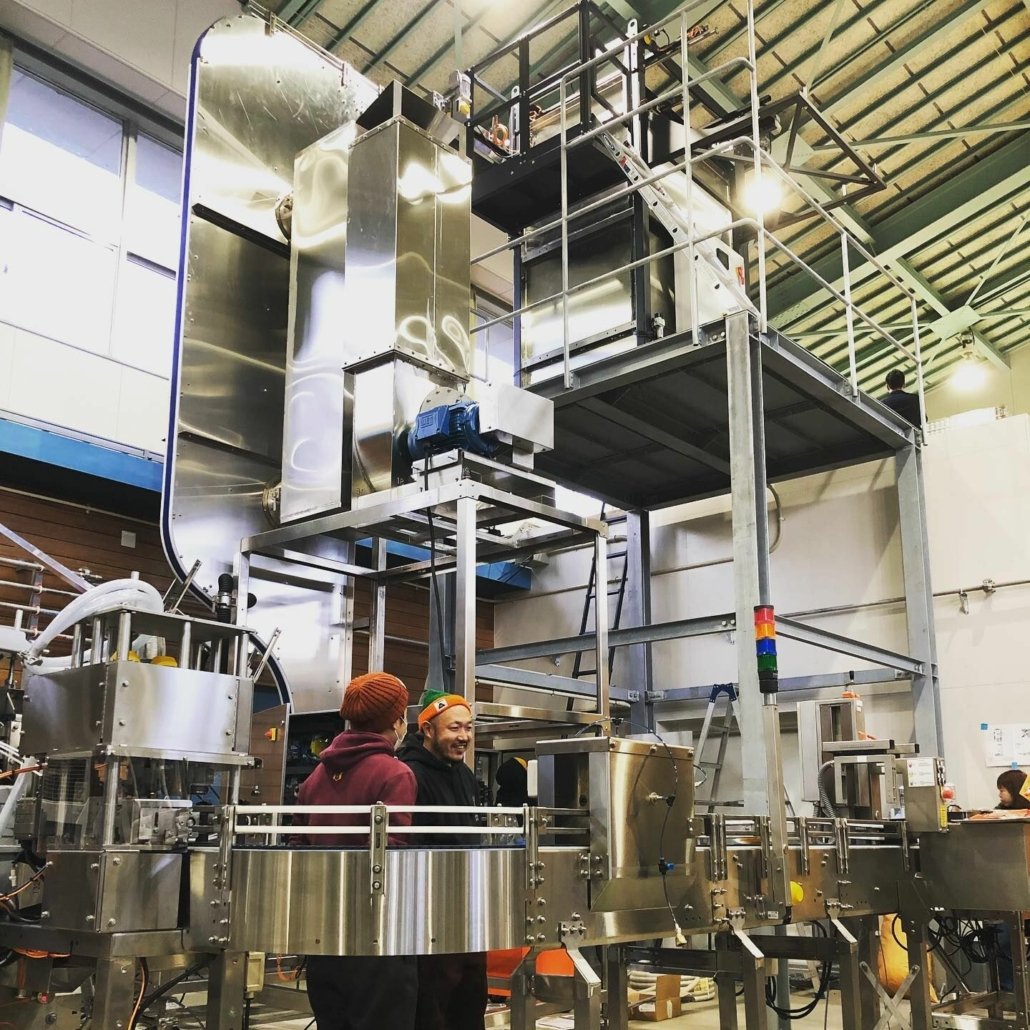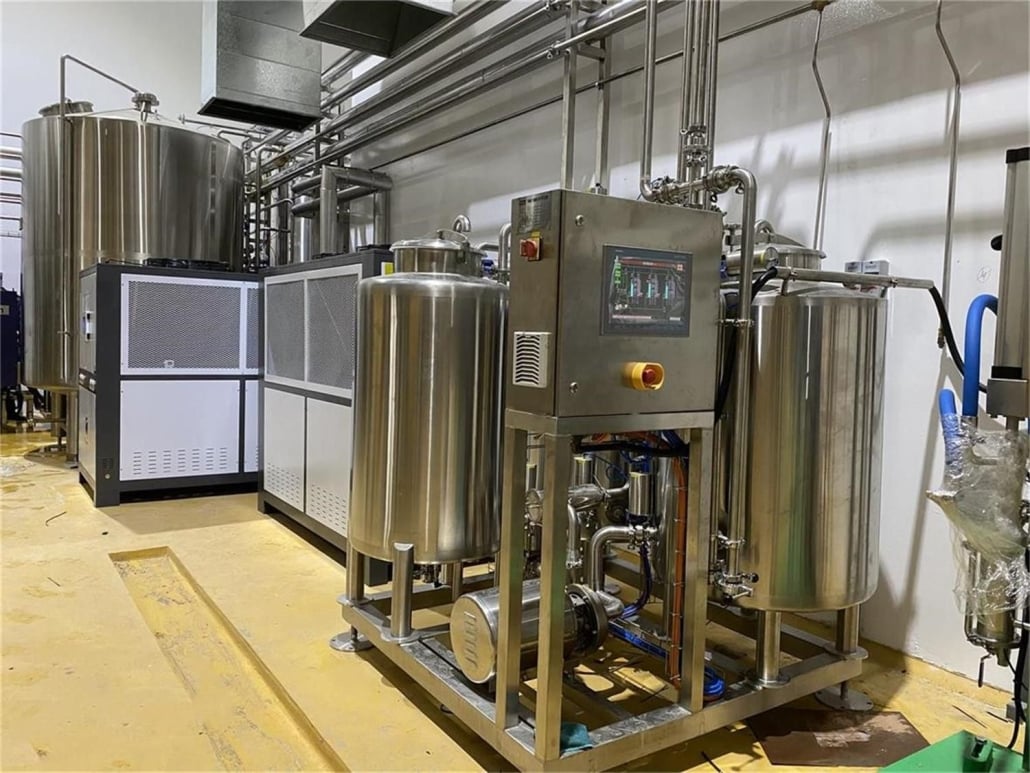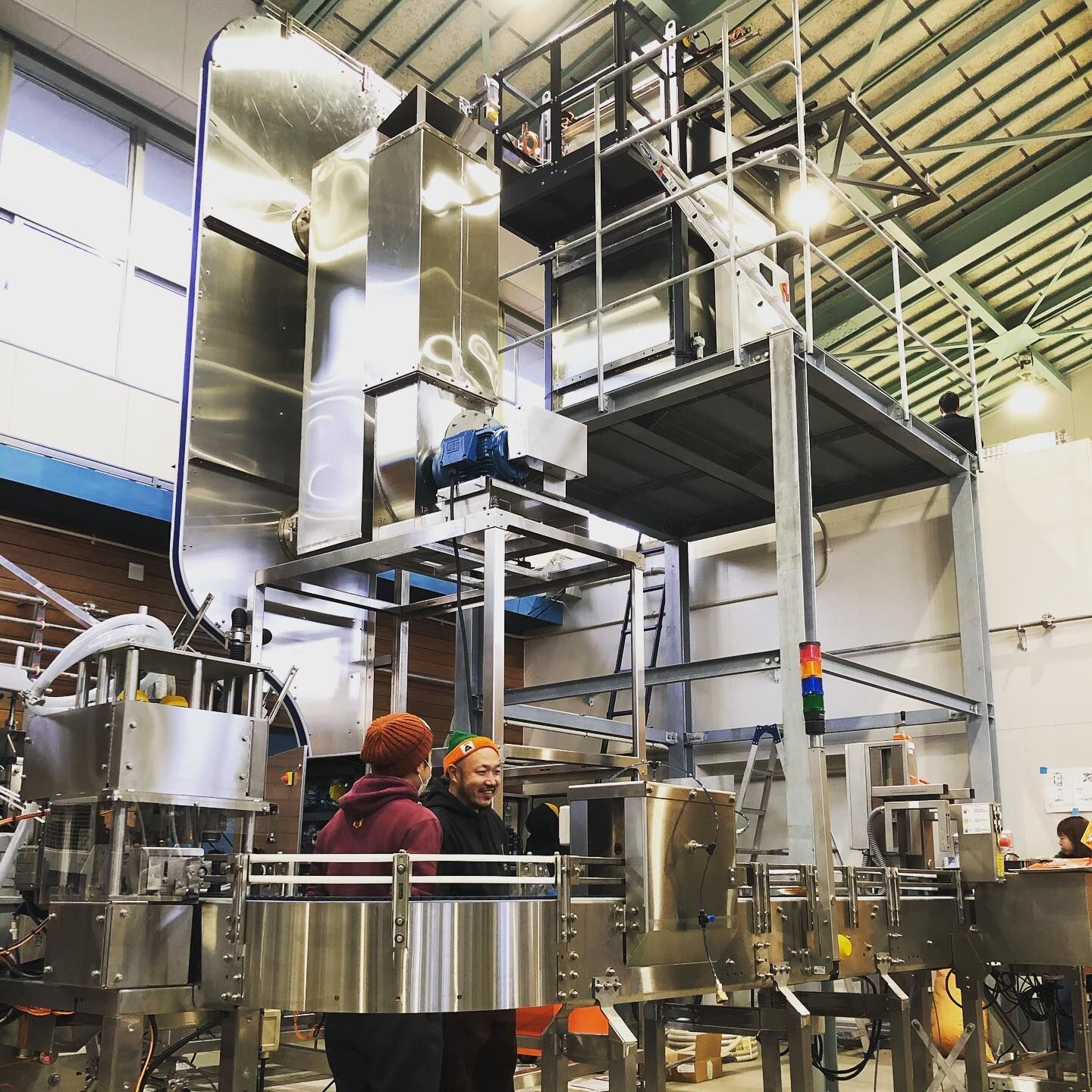4 Vessel Brewing System
Overview of the 4 Vessel Brewing System
A 4 vessel brewing system is a professional-grade setup that separates the brewing process into four distinct stages, each handled by a specific vessel. This structure optimizes the brewing process, minimizes downtime, and enables precise control over each step, resulting in consistent, high-quality beer. Here’s a quick breakdown of each vessel and its function:
- Mash Tun: Where the grains are mixed with hot water to convert starches into fermentable sugars.
- Lauter Tun: Where the mash is separated into wort (the liquid) and spent grains.
- Boil Kettle: Where the wort is boiled, hops are added, and flavors are developed.
- Whirlpool: Where solids are separated from the wort, preparing it for fermentation.
Key Benefits of a 4 Vessel Brewing System
Compared to smaller setups, a 4 vessel system offers multiple advantages:
- Efficiency: Multiple processes can run in parallel, which saves time.
- Consistency: Precise control at each stage leads to more consistent quality.
- Scalability: Ideal for large-scale production without compromising quality.

Equipment Guide for 4 Vessel Brewing Systems
To get the most from a 4 vessel brewing system, it’s essential to understand each component’s role. Here’s a deep dive into each vessel’s functions and design specifications.
| Vessel | Function | Design Features | Key Considerations |
|---|---|---|---|
| Mash Tun | Converts starches into fermentable sugars through mashing. | Insulated, often includes an agitator for even mixing. | Ensure efficient heat retention and easy cleaning. |
| Lauter Tun | Separates the wort from the spent grains. | Typically has a slotted floor or false bottom for filtration. | Look for a tun with adjustable rakes for improved filtration. |
| Boil Kettle | Boils the wort, sterilizes it, and helps develop beer flavors. | Requires a burner or steam source, venting, and insulation. | Energy efficiency and fast heating are key. |
| Whirlpool | Separates hops and solids from wort before fermentation. | Designed for effective whirlpool circulation to gather solids at the bottom. | Ensure there’s an easy way to remove the solids after separation. |
The Brewing Process in a 4 Vessel System
A 4 vessel brewing process allows simultaneous activities, enhancing efficiency. Here’s how the process unfolds in each vessel:
- Mashing in the Mash Tun: The brewing journey starts with mashing, where hot water is mixed with malted barley to convert starches into sugars. The goal? Achieving a sweet, fermentable liquid called wort. With a 4 vessel system, the mash tun is purpose-built for temperature stability, ensuring enzymes do their job effectively.
- Lautering in the Lauter Tun: After mashing, the mixture moves to the lauter tun. Here, the mash is separated, yielding clear wort. The lauter tun is crucial because it lets you achieve high wort clarity, setting the stage for a smooth, flavorful final product.
- Boiling in the Boil Kettle: Next, the wort goes to the boil kettle, where hops are added, lending bitterness and complexity to the beer. Boiling sterilizes the wort and halts any remaining enzymatic activity. This vessel’s design focuses on energy efficiency, ensuring a powerful, even boil.
- Whirlpooling in the Whirlpool: Finally, the wort is transferred to the whirlpool, where centrifugal forces gather solids at the bottom. This separation prepares the wort for fermentation, ensuring only the cleanest liquid moves on to become beer.
Comparing 4 Vessel Brewing System Capacities and Layouts
Different brewing systems offer various capacities and layouts. Here’s a table comparing capacities, space requirements, design features, and customization options.
| Parameter | Small-Scale System | Mid-Scale System | Large-Scale System |
|---|---|---|---|
| Capacity | Up to 10 barrels | 10-30 barrels | 30+ barrels |
| Space Requirements | Compact; can fit in small spaces | Requires dedicated brewing space | Needs substantial space, possibly a separate building |
| Design Features | Basic; limited automation | Moderate automation, good thermal control | Fully automated, high efficiency |
| Customization | Limited | Available with specific features | Highly customizable; tailored solutions |
Top Suppliers and Price Range for 4 Vessel Brewing Systems
When selecting a 4 vessel brewing system, it’s helpful to know your options regarding suppliers and budget. Below is a list of popular suppliers and a general price range for their offerings.
| Supplier | Country | Price Range | Specialization |
|---|---|---|---|
| ABC Brew Equipment | United States | $100,000 – $300,000 | High-quality customization, extensive support |
| Global Brew Systems | Germany | $120,000 – $350,000 | Known for durability and advanced automation |
| BrewTech International | China | $80,000 – $200,000 | Affordable with competitive warranty options |
| EuroBrew Machinery | Belgium | $150,000 – $400,000 | Top-notch for large-scale production setups |
Installation, Operation, and Maintenance of a 4 Vessel Brewing System
Installing and operating a 4 vessel brewing system requires professional oversight, while regular maintenance is essential for longevity. Let’s break down what’s involved in each area.
| Aspect | Details |
|---|---|
| Installation | Involves piping, wiring, and calibration. Requires technical expertise and careful planning. |
| Operation | Operators should be trained on temperature control, timing, and troubleshooting. |
| Maintenance | Regular cleaning, checking seals, and inspecting heating elements are necessary for longevity. |
Choosing the Right Supplier for a 4 Vessel Brewing System
With multiple suppliers on the market, selecting the right one depends on factors like customization needs, budget, and service support. Here’s a breakdown to guide you in the selection process.
| Criteria | What to Look For |
|---|---|
| Customization Options | Choose a supplier that offers tailored solutions if you have specific brewing goals. |
| Technical Support | Look for companies that offer installation and ongoing technical support. |
| Reputation | Consider suppliers with strong reputations for durability and customer satisfaction. |

Advantages and Disadvantages of 4 Vessel Brewing Systems
While 4 vessel systems are powerful, they may not be the best fit for everyone. Here’s a look at their pros and cons.
| Pros | Cons |
|---|---|
| Increases efficiency through simultaneous stages | Higher upfront cost than smaller systems |
| Consistent quality control | Requires more space and installation time |
| Scalable for growing production demands | Demands trained personnel for operation |
FAQs
| Question | Answer |
|---|---|
| What’s the capacity of a 4 vessel brewing system? | Capacities range from 10 barrels for smaller systems to 30+ barrels for larger setups. |
| How much does a 4 vessel brewing system cost? | Prices typically range between $80,000 and $400,000, depending on size and customization. |
| Can I use a 4 vessel system in a small space? | Mid- to large-scale systems require substantial space, while smaller units might fit tighter areas. |
| Is maintenance difficult for a 4 vessel system? | Maintenance requires regular cleaning and periodic inspection of components to ensure efficiency. |
| How long does installation take? | Installation can take several weeks, depending on space and the complexity of the system. |
Share this entry
Interested in learning more about Brewing Systems including additional details and pricing information? Please use the form below to contact us!
YOLONG BREWERY EQUIPMENT FAQS
- Commercial Brewery / Craft Brewery / Microbrewery / Nanobrewery
- What is The Difference Between Craft Beer and Industrial Beer?
- The Bespoke Differences In Custom Brewing Systems
- Everything You Need to Know About Kettle Souring
- How to Choose Brewing Equipment for Your business?
- How To Choose The-Best Partner To Build Your Commercial Microbrewing System?
- Two Detection Sensors That You Need To Use In Your Brewhouse System
- Remote Control Applications in Brewing Equipment/How does it work?
- How To Clean Your Brand New Brewery Tanks?

